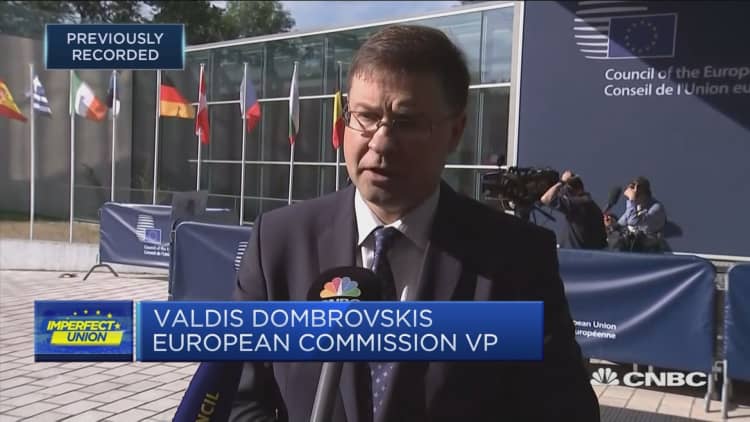Italy's finance chief does not see ongoing talks over a parallel currency materializing.
Market players have been wary of parliamentary discussions in Rome regarding an alternative for government debt repayments. Lawmakers are considering a proposal that would see the Italian Treasury issue securities — so-called mini-BOTs (short-term treasury bills) — that could be used by recipients to pay taxes or to buy goods or services from state-owned companies.
However, Giovanni Tria, the country's finance minister, said Tuesday at a conference in London that he does not think mini-BOTs will be introduced. "We do not need this kind of instrument," Tria said, according to Reuters. He also added that the introduction of a parallel currency is not on the agenda.
Tria, a technocrat without political affiliation, sounded more moderate than some of his government colleagues.
"We don't want to create problems in Europe. We have to reinforce the trust in investors in Italy's finance situations," the finance minister told the audience.
Supporters of the idea, including one of Italy's ruling parties, Lega, believe the short-term securities would help the government reduce its outstanding bills. On the other hand, critics argue that it would lead to higher public debt in a country that already has the second-largest debt pile in the euro zone.

The mini-BOTs discussion has also resurfaced fears about Italy's commitment to the single currency. Prior to the general election in 2018, both coalition parties — the leftist Five Star Movement and the right-wing Lega, spread doubts about the country's membership of the euro zone.
Since then, both parties have toned down their euroskepticism but one of the main economic minds from Lega, Claudio Borghi, is still openly hostile to the idea of the common currency.
"There are a number of economists, including influential ones close to the Italian government, who believe the euro is a key reason for Italian underperformance, and the leaders of the coalition have never fully put this idea to bed," Erik Nielsen, group chief economist at UniCredit, said in a note last week.
Both the European Central Bank (ECB) and the International Monetary Fund have sounded skeptical about the mini-BOTs discussion. Christine Lagarde, the International Monetary Fund's managing director, told CNBC last Thursday: "On this strange financial instrument that has been developed in Italy, we think that there are many better ways to deal with the payment of arrears. It does not require the creation of such instruments. Italian bonds could absolutely do the job … why bother?"


